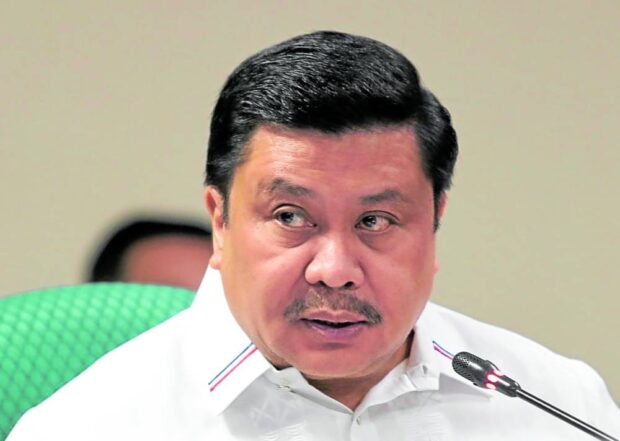MANILA, Philippines — Sen. Jinggoy Estrada on Sunday said the Armed Forces of the Philippines was supportive of the proposal to collect contributions from military and other uniformed personnel (MUP) for their pension fund, which President Ferdinand Marcos Jr. warned would soon be depleted.
This signals a breakthrough in the tricky issue of reforming the MUP pension system, which is fully funded by the yearly national government budget with no contributions from uniformed personnel, unlike the Social Security System and the Government Service Insurance System which are financed in part by workers’ contributions.
National Treasurer Rosalia de Leon had earlier said that the funding requirement to pay for MUP pensions has been growing at a “fiscally unsustainable rate,” since the unfunded liabilities were already estimated at P9.6 trillion as of 2020.
The executive branch is proposing that the MUP pension system reforms cover both active personnel and new entrants, with all of them making contributions for their pension—a move opposed by uniformed personnel who argued that the new pension system should be applied only to new entrants.
At a Senate hearing last week, Undersecretary Carlito Galvez Jr., the officer in charge of the Department of National Defense, warned that up to 80 percent of military servicemen were looking at availing themselves of optional retirement to lock in their benefits before the government revises their pension system.
Estrada, chair of the Senate national defense committee, said he was able to discuss the matter with AFP chief Gen. Andres Centino when they flew to Pag-asa Island in the West Philippine Sea off Palawan province last week.
“It is acceptable to them. We just have to determine the percentage of their contribution,” Estrada told radio dzBB.
A Senate measure that he authored seeks to reform the MUP’s retirement system. This has been submitted to the technical working group for discussion.
Do away with ‘indexation’
Estrada said representatives from the government’s economic team, the AFP, and other uniformed services such as the Philippine National Police, the Philippine Coast Guard, and the Bureau of Corrections would be consulted on the matter.
Estrada said Marcos’ economic managers also wanted to do away with the existing “indexation” of their retirement pay, which pegs their monthly pension to the current salary of those occupying the next higher rank.
“So if you retire as a colonel, your pension will be equal to that [of the salary] of a colonel, [not a one-star general],” the senator said.
The lawmaker acknowledged that introducing changes to the decades-old noncontributory pension system of soldiers and other uniformed personnel was a “ticklish issue.”
“We will craft a [new] mechanism that will be acceptable to everybody,” Estrada said, adding: “We are toying with the idea of letting active [MUPs] contribute [to their pension], but not at once. We will do it on a staggered basis.”
He also assured retired MUPs that their benefits would not be affected by the planned reforms, which the President said should be implemented as soon as possible.
Changes to take years
While it was possible for the new policies to cover only those who would enter the government’s armed services after the enactment of the proposed law, Estrada admitted that any improvement in the MUP pension system would take years if this was to be adopted.
“If we will just focus on the new entrants, that will not solve the problems because [the changes] will be realized in about 20 years from now,” the senator said. “It will not stop the bleeding.”
He also urged those in active service not to opt for early retirement as feared by Galvez.
“I appeal to the MUPs not to file for an early retirement because, as I have said, we will craft a bill that will be acceptable to everybody,” Estrada said.
